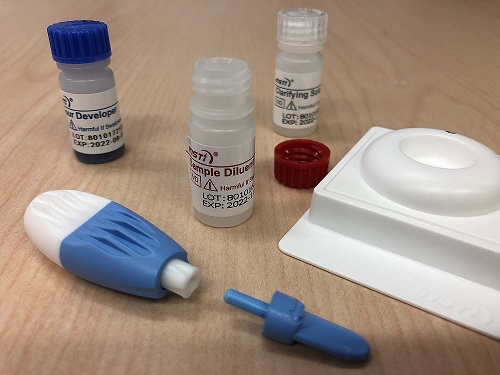The Saskatchewan government proclaimed June 27 as the provincial Human Immunodeficiency Virus (HIV) Testing Day to coincide with the annual National HIV Testing Day in Canada.

In a release, the Saskatchewan Health Minister Paul Merriman stated that knowing your status is the most powerful information you have for reducing the spread of HIV.
“We are proud to align with National HIV Testing Day, to raise awareness around the importance of getting tested and to reduce the stigma associated with HIV,” Merriman said.
According to the Canadian AIDS Society, one in five Canadians living with HIV are unaware that they are HIV positive.
The Canadian Aboriginal AIDS Network (CAAN) Communities, Alliances and Networks said statistics across this land show that Saskatchewan has the highest rate of HIV among Indigenous people.
“As we move forward in regard to addressing that, we need to talk about testing,” said Margaret Kisikaw Piyesis, CAAN’s CEO. “HIV has been a disease that has been forgotten by many of the government, by society in general, in terms of addressing it.”

Get weekly health news
Kisikaw Piyesis said that today we are seeing high numbers of HIV within our communities due to the fact that COVID-19 became a pandemic, and all resources were put towards it.
“There were a lot of care, treatment, and support services that were closed down during COVID. And so, people who are most at risk to come into contact with HIV definitely did come into contact with HIV,” she said.
“The results of that is the fallout of new many new cases of HIV on this land, especially among Indigenous people. … So National Testing Day is important to the provincial government to acknowledge that there is a need here in Saskatchewan.“
Caitlin Cottrell, executive director of Saskatoon Sexual Health, said the situation is concerning as Saskatoon has the highest rates of HIV in Canada, almost five times the national rate of HIV.
“We have up to 160 cases per 100,000 in Saskatoon, and that is significantly higher than the national average,” Cottrell said.
“A lot of folks who are engaging in substance use and abuse are contracting HIV and then spreading it through heterosexual sex instead of sharing needles. We also have a lot of sex work in Saskatchewan. And so a lot of folks are engaging in sex work and unfortunately then finding themselves with HIV.”
Cottrell said prevention is key and that prophylactics are always recommended.
The self-tests take a minute to provide results and only require a little bit of blood from the fingertip and can be done from home. The kits are free to the general public and are available in 23 locations in Saskatchewan such as All Nations Hope in Regina and Saskatoon Sexual Health.
People can visit the Saskatchewan government website for HIV testing and locations.









Comments
Want to discuss? Please read our Commenting Policy first.